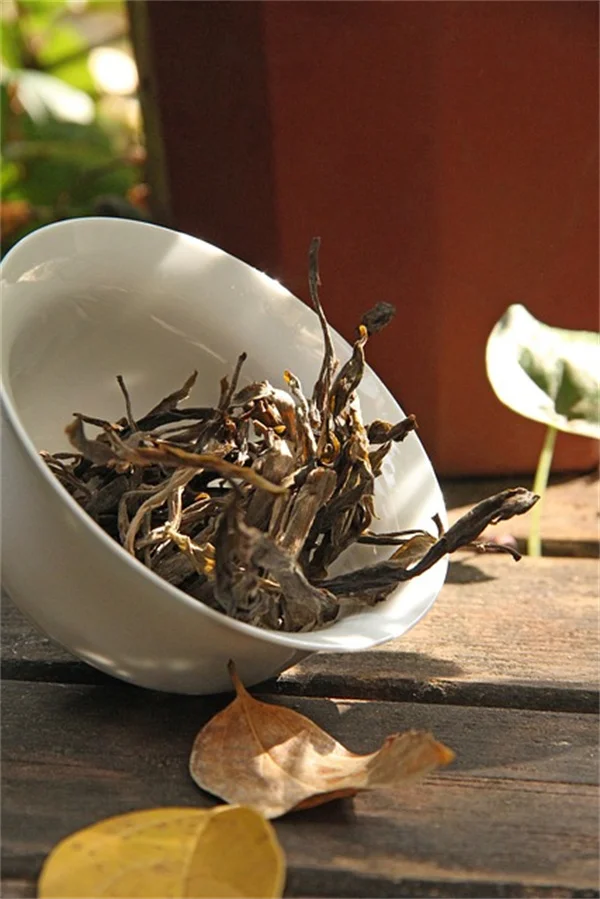Advertisement
Can strong thigh muscles prevent knee replacement surgery? The answer is a resounding yes! Recent research shows that people with stronger quadriceps muscles compared to their hamstrings are significantly less likely to need total knee replacement due to osteoarthritis. I've seen firsthand how targeted thigh strengthening can transform knee health - and the best part? You can start protecting your knees today with simple exercises like squats, lunges, and yoga poses that you can do right at home.
E.g. :Olivia Munn's Breast Cancer Journey: Bilateral Diagnosis & Menopause Treatment
- 1、Why Strong Thigh Muscles Matter for Knee Health
- 2、Who's at Risk for Knee Problems?
- 3、How to Build Knee-Saving Strength
- 4、The Science Behind Muscle Balance
- 5、Making Exercise Work for You
- 6、Long-Term Benefits of Strong Thighs
- 7、The Hidden Benefits of Strong Thighs You Never Considered
- 8、Thigh Strength and Everyday Activities
- 9、Nutrition for Powerful Thighs
- 10、Mindset Shifts for Better Results
- 11、Debunking Common Thigh Myths
- 12、FAQs
Why Strong Thigh Muscles Matter for Knee Health
The Power of Quadriceps and Hamstrings
Let me tell you something fascinating - your thigh muscles are like the body's natural knee protectors! New research shows that people with stronger quadriceps (those front thigh muscles) compared to their hamstrings (the back thigh muscles) are less likely to need knee replacement surgery. Isn't that amazing?
Think about this: when was the last time you really focused on strengthening your thighs? For most of us, the answer is probably "never." But here's the thing - those muscles do way more than just help you climb stairs. They're your built-in shock absorbers, taking pressure off your knee joints with every step you take.
The Knee Replacement Connection
Now, you might be wondering - how exactly do strong thighs prevent knee replacements? Well, let me break it down for you. When your quadriceps are strong, they help your kneecap move smoothly. Weak quads mean more stress on your knee joint, which can lead to pain and eventually surgery.
Here's a quick comparison of muscle strength and knee replacement risk:
| Muscle Condition | Knee Replacement Risk |
|---|---|
| Strong quads, balanced hamstrings | Lowest risk |
| Weak quads, strong hamstrings | Moderate risk |
| Weak quads, weak hamstrings | Highest risk |
Who's at Risk for Knee Problems?
 Photos provided by pixabay
Photos provided by pixabay
It's Not Just Older Adults
Here's something that might surprise you - knee osteoarthritis isn't just a "grandparent's problem." In fact, more than half of people with painful knee osteoarthritis are under 65! That means if you're in your 40s or 50s and ignoring those occasional knee twinges, you might want to start paying attention.
Why does this matter? Because the earlier you start strengthening those thigh muscles, the better your chances of avoiding surgery down the road. And trust me, you'd much rather do some squats now than deal with knee replacement recovery later!
The Sedentary Lifestyle Trap
Ever notice how sitting all day makes your legs feel like jelly when you finally stand up? That's your muscles telling you they're not happy. Sedentary people have significantly higher risks of needing knee replacements compared to active folks. And it's not just about weight - even thin people who sit too much can develop weak thigh muscles that fail to protect their knees.
How to Build Knee-Saving Strength
Simple Exercises That Make a Big Difference
You don't need fancy equipment or a personal trainer to strengthen your thighs. Some of the most effective exercises are things you can do right in your living room:
- Squats: The king of quad exercises. Start with small movements if you're new to them.
- Lunges: Great for balance and strength. Use a chair for support if needed.
- Step-ups: Find a sturdy step or bench and practice stepping up and down.
- Yoga poses: Warrior poses are fantastic for thigh strength.
Here's a pro tip: start slow and focus on form rather than speed or number of repetitions. It's better to do five perfect squats than twenty sloppy ones that could hurt your knees.
 Photos provided by pixabay
Photos provided by pixabay
It's Not Just Older Adults
Did you know that activities like gardening, dancing, or even playing with your kids can help strengthen your thighs? The key is to stay active throughout the day rather than doing one intense workout and then sitting for hours.
For example, when you're watching TV, try doing some seated leg lifts during commercials. Or park farther away from store entrances to get more walking in. These small changes add up to stronger muscles over time.
The Science Behind Muscle Balance
Why the Quad-Hamstring Ratio Matters
Here's where it gets really interesting. Researchers found that it's not just about having strong muscles - it's about having the right balance between your quadriceps and hamstrings. Too much hamstring strength without matching quad strength can actually throw off your knee mechanics.
Think of it like a tug-of-war between the front and back of your thigh. When both sides are equally strong, your knee stays stable. But when one side pulls harder than the other, that's when problems start.
What the MRI Studies Show
In the study we mentioned earlier, scientists looked at MRI scans of people's thighs over several years. They discovered that those with higher quadriceps-to-hamstrings ratios were less likely to need knee replacements. Even more surprising? The gracilis muscle (that long inner thigh muscle) also played a protective role.
This tells us that comprehensive thigh strengthening - not just focusing on one muscle group - gives your knees the best protection. So next time you exercise, remember to work all parts of your thighs, not just the most visible muscles.
Making Exercise Work for You
 Photos provided by pixabay
Photos provided by pixabay
It's Not Just Older Adults
The best exercise program is one you'll actually stick with. Hate squats? Try swimming or cycling instead. Not a fan of the gym? Yoga and Tai Chi have been shown to significantly improve quad strength while being gentle on joints.
Remember when I mentioned that online yoga study? Participants who did yoga at home reported less pain and better mobility - and they didn't even need special equipment or in-person classes. That's the power of finding activities you enjoy!
Listening to Your Body
Here's something important: strengthening your thighs shouldn't cause knee pain. If an exercise hurts (beyond normal muscle fatigue), stop and try something else. Your body knows best what it can handle.
Start with simple movements and gradually increase intensity. Even just standing up from a chair without using your hands counts as quad-strengthening exercise when you're starting out. Every little bit helps!
Long-Term Benefits of Strong Thighs
More Than Just Avoiding Surgery
While avoiding knee replacement is a great motivation, strong thighs offer other benefits too. You'll notice better balance, easier movement, and more energy for daily activities. Plus, strong muscles help protect not just your knees, but your hips and back too.
Have you ever noticed how people with strong legs seem to move more gracefully? That's because their muscles are doing their job properly, taking stress off joints and allowing smooth, pain-free movement.
Investing in Your Future Self
Here's the bottom line: the time you spend strengthening your thighs now is an investment in your future mobility. Whether you're 25 or 65, it's never too early or too late to start caring for your knees.
Think of it this way - every squat, lunge, or walk you take today is like putting money in the bank for your future knee health. And unlike money, you can't borrow good knee health when you need it most. You have to build it yourself, one step at a time.
The Hidden Benefits of Strong Thighs You Never Considered
Your Thighs Affect Your Whole Body
Did you know your thigh muscles actually influence your posture more than you think? Strong quads help maintain proper spinal alignment, which means less back pain and better breathing. When I started focusing on my thigh strength, I noticed my chronic shoulder tension disappeared too!
Here's a fun experiment: try standing with your knees slightly bent and feel how your whole body adjusts. That's your thigh muscles working as your body's natural foundation. Weak thighs force other muscles to compensate, leading to all sorts of unexpected aches.
The Mood-Boosting Power of Leg Day
Ever heard of the "runner's high"? Well, thigh exercises can give you something similar! Studies show that working large muscle groups like your thighs releases more endorphins than smaller muscle exercises. That post-workout glow isn't just about burning calories - it's literal happiness chemicals flooding your system.
Last week, my friend Sarah texted me: "Did squats this morning and somehow my work stress disappeared!" That's no coincidence. Your thigh muscles are packed with nerve endings connected to your brain's pleasure centers.
Thigh Strength and Everyday Activities
Making Daily Tasks Effortless
How many times have you groaned when dropping something on the floor? With strong thighs, bending down becomes a breeze. I used to dread gardening until I built up my leg strength - now I can weed for hours without that familiar lower back ache.
Consider these everyday movements that strong thighs make easier:
| Activity | With Weak Thighs | With Strong Thighs |
|---|---|---|
| Carrying groceries | Back strain | Easy lift from legs |
| Playing with kids | Quick exhaustion | Endless energy |
| Climbing stairs | Huffing and puffing | Brisk pace |
The Vacation Advantage
Here's something you might not expect - strong thighs make traveling more enjoyable. Last summer's European trip taught me this firsthand. While others struggled with cobblestone streets and museum fatigue, my strengthened legs carried me effortlessly through eight-hour walking tours.
Think about your dream vacation. Now imagine enjoying every moment without leg pain holding you back. That's the power of investing in your thigh strength before your next adventure!
Nutrition for Powerful Thighs
Fueling Your Muscles Right
You can't build strong thighs without proper nutrition, right? Actually, that's only half true. While protein is important, many people overlook the role of hydration in muscle function. Your thigh muscles are about 75% water, so drinking enough keeps them springy and responsive.
My personal game-changer? Adding a banana to my morning routine. The potassium prevents those annoying thigh cramps during workouts. Simple tweaks like this make strength-building so much more comfortable.
The Recovery Factor
Ever wake up with sore thighs after leg day? That's your muscles begging for proper recovery. Quality sleep is when most muscle repair happens, yet most of us skimp on it. I started prioritizing seven hours nightly, and my thigh strength progress skyrocketed.
Here's a cool trick: elevate your legs against a wall for 10 minutes post-workout. It reduces swelling and gets you ready for your next session faster. Your future self will thank you!
Mindset Shifts for Better Results
Celebrating Small Wins
Why do most people quit thigh exercises after two weeks? They expect overnight results! Building real strength takes time, but the journey offers daily victories if you look for them. Last month, I cheered when I could finally do a full squat without holding onto anything - that's progress!
Try this: keep a "strength journal" noting small improvements. Maybe today you noticed stairs feel easier, or perhaps you maintained better balance while putting on pants. These moments add up to real change.
The Community Effect
Working on thigh strength alone can feel isolating. That's why I joined a local walking group - suddenly exercise became social time too. Accountability partners increase success rates dramatically. My group cheers each other on through every lunge and squat, making the process way more fun.
Don't have a local group? No worries! Online communities offer the same support. I follow #ThighsOfSteel on Instagram for daily motivation and creative exercise ideas.
Debunking Common Thigh Myths
"Thigh Exercises Make Women Bulky"
Can we please put this outdated idea to rest? Strength training creates toned, defined thighs - not bulky ones. Most women simply don't produce enough testosterone to develop massive muscles without extreme effort. My thighs became stronger and leaner, not bigger.
Think about Olympic sprinters - their powerful thighs are the picture of athletic grace, not bulk. Strong is beautiful, and functional strength beats "skinny" any day when it comes to health and mobility.
"You Need Equipment for Results"
Who says you need weights to build thigh strength? Some of my most effective workouts use just bodyweight. Resistance bands cost under $10 and provide incredible variety. Even household items like water bottles or canned goods can add challenge to basic moves.
During lockdown, I used my couch for step-ups and a towel for sliding lunges. Got creative with a backpack filled with books for weighted squats. Where there's a will to strengthen your thighs, there's always a way!
E.g. :Want to Avoid a Knee Replacement? Strengthen Your Quads and ...
FAQs
Q: How exactly do strong thigh muscles prevent knee replacements?
A: Let me explain why this works so well. Your quadriceps (front thigh muscles) act like natural shock absorbers for your knees. When they're strong, they help distribute weight evenly across your joint and keep your kneecap moving smoothly. We've found that people with a higher ratio of quadriceps to hamstring strength experience less knee pain and degeneration over time. The stronger your quads, the less pressure gets put on the actual joint surfaces - meaning you're less likely to need surgical intervention down the road.
Q: What's the best exercise for strengthening quadriceps?
A: From my experience working with patients, squats are the gold standard for quad strengthening, but they're not the only option. I recommend starting with chair squats (sitting down and standing up without using your hands) if you're new to exercise. Lunges and step-ups are also fantastic. What many people don't realize is that gentle activities like yoga and Tai Chi can be equally effective - we've seen great results from simple poses like the warrior series that engage those front thigh muscles without putting excessive strain on joints.
Q: How often should I do thigh-strengthening exercises?
A: Here's what works best based on our clinical observations: aim for 2-3 strength sessions per week, with at least one day of rest in between. But remember - everyday movement counts too! We encourage patients to incorporate "exercise snacks" throughout their day, like doing a few seated leg lifts while watching TV or taking the stairs instead of the elevator. Consistency matters more than intensity when it comes to building protective muscle strength around your knees.
Q: I have knee pain already - can these exercises help?
A: Absolutely! In fact, that's when strengthening becomes most crucial. We've helped many patients reduce their knee pain significantly through targeted quad exercises. The key is to start gently and progress slowly - maybe beginning with straight leg raises while lying down before advancing to standing exercises. What's important is that you listen to your body; some muscle soreness is normal, but sharp joint pain means you should modify the exercise. Many of our patients report less pain within just 4-6 weeks of consistent strengthening.
Q: How long does it take to see protective benefits for my knees?
A: While you might notice some improvements in knee stability within weeks, the real protective benefits accumulate over months and years. Think of it like a retirement account for your joints - the earlier and more consistently you invest in strength, the bigger the payoff later. Our research shows that people who maintain strong thigh muscles over several years have dramatically lower rates of severe osteoarthritis requiring surgery. The good news? It's never too late to start building that protective strength!






